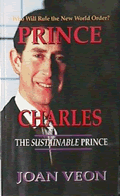US ROLE IN IRAQ THREATENS SECURITY
 By
Charles Peña
By
Charles Peña
May
14, 2008
NewsWithViews.com
More than four years after the decision to invade Iraq to depose Saddam Hussein and impose democracy, nearly 160,000 U.S. soldiers remain there.
Despite the war’s growing unpopularity with Americans, President Bush is adamant about not setting an “artificial deadline” for withdrawing troops.
Last week’s anniversary of the fall of Saigon, April 30, 1975, and the final U.S. withdrawal from Vietnam, ending the longest war of the last century, prompts some historical reflection—for example, the poignant photograph of people being plucked off that famous Saigon rooftop in April 1975, juxtaposed against the completion in Baghdad of the largest U.S. embassy ever.
In January 1973, the Paris agreement on Vietnam was concluded, providing for the withdrawal of American troops, and soon a cease-fire agreement was signed. Although the war’s end was imminent—this is not clear today with Iraq—the CIA’s Air America operation continued, and actually had its greatest losses in the two years following the decision to terminate the company.
So, just how long will the U.S. remain in Iraq? The answer appears to be “indefinitely.” The declaration of principles signed by Bush and Iraqi Prime Minister Nouri al-Maliki in November commits the U.S. to a “long-term relationship” with Iraq, including “security assurances and commitments.”
Iraqi officials foresee a continued presence of 50,000 U.S. troops as a security guarantee.
Before the invasion, the president had declared, “We will remain in Iraq as long as necessary, and not a day more.” He also asserted that “the United States has no intention of determining the precise form of Iraq’s new government.” But the declaration of principles means there is no end in sight on how long the U.S. will stay in Iraq. Moreover, a primary reason for having U.S. troops in Iraq is essentially to determine its precise form of government, i.e., supporting the Republic of Iraq in defending its democratic system against internal and external threats.
Given Iraq’s security forces’ current capabilities, of course their government would want the U.S. to provide for Iraqi security. But stability and security in Iraq are not—and never were—prerequisites for U.S. security. An insecure Iraq may be unpleasant, but is not a threat per se.
Even an unfriendly Iraqi government would not represent a direct military threat (just as Saddam Hussein never did). While Islamic extremist terrorists might remain in Iraq (a presence that did not exist under Saddam and was enabled by the U.S. invasion), they would be a threat to the Iraqi government, but not to America. Iraqis—including Sunnis—have no great love for Osama bin Laden or al-Qaida, so Iraq wouldn’t likely become a sanctuary for al-Qaida as Afghanistan was under the Taliban.
Perhaps more important, U.S. military presence in Iraq actually compromises U.S. security. We know that 5,000 U.S. troops’ presence in Saudi Arabia after the Gulf War fomented bin Laden’s hatred of the U.S., and was a stated reason for attacking America on 9/11. Even former Deputy Secretary of Defense Paul Wolfowitz (considered the architect of the Bush administration’s Iraq policy) admitted that U.S. forces in Saudi Arabia were “a huge recruiting device for al-Qaida.” So is keeping 10 times that many U.S. troops in Iraq—a country of great cultural importance to the Arab world.
Indeed, an April 2006 National Intelligence Estimate concluded that “the war in Iraq has become a primary recruitment vehicle for violent Islamic extremists, motivating a new generation of potential terrorists around the world whose numbers may be increasing faster than the United States and its allies can reduce the threat,” and that “the Iraq conflict has become the ‘cause célèbre’ for jihadists, breeding a deep resentment of U.S. involvement in the Muslim world and cultivating supporters for the global jihadist movement.”
|
Subscribe to the NewsWithViews Daily News Alerts! |
Ultimately, an endless occupation of Iraq will do more to embolden the enemy who did us harm on 9/11 and increase the risk of terrorism on U.S. soil by giving Muslims worldwide more reasons to hate America. U.S. security demands we do the opposite of staying. Paradoxically, leaving Iraq is actually a prerequisite, if not to victory, at least to avoiding defeat.
� 2008 - Charles Peña - All Rights Reserved










